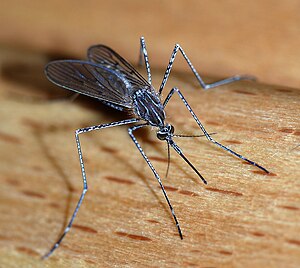 Today is May 21, 2010, the last day of Go Fetch Fitness for 2010! We had such a tremendous group this year and each week was just packed with fun and learning. Our last two weeks, week five and six, were so exciting! In week five our special guest was Mary McInnis Meyer who has a yoga studio (Field of Yoga) right across the street from the veterinary hospital in downtown Cedar Falls. Mary is a wonderful speaker and she opened her studio up to all of our dogs and us for the first ever DOGA class in Cedar Falls. (That's dogs plus yoga = Doga!) We had a blast and really came away from this experience with a new understanding and appreciation for the health benefits of yoga. You can see pictures from this class at the Waterloo Cedar Falls Courier Website.
Today is May 21, 2010, the last day of Go Fetch Fitness for 2010! We had such a tremendous group this year and each week was just packed with fun and learning. Our last two weeks, week five and six, were so exciting! In week five our special guest was Mary McInnis Meyer who has a yoga studio (Field of Yoga) right across the street from the veterinary hospital in downtown Cedar Falls. Mary is a wonderful speaker and she opened her studio up to all of our dogs and us for the first ever DOGA class in Cedar Falls. (That's dogs plus yoga = Doga!) We had a blast and really came away from this experience with a new understanding and appreciation for the health benefits of yoga. You can see pictures from this class at the Waterloo Cedar Falls Courier Website.Week Six, our last week together, brought some glorious weather as we really pushed our way through our last three days together. This week was all about the exercise and we did our stretch out exercises and then immediately hit the trail. Our goal was a solid 45 minutes of walking which we accomplished along the beautiful Cedar Valley Trail system excending from Taylor Veterinary Hospital to Big Woods Lake and back!!
Team 2, the K-9 kids, were our big winners this year losing a total sum of 22.7 pounds! Wow! Congratulations! These determined walkers will be receiving a year supply of FREE dog food from Hill's Science Diet Pet Foods! Our individual with the most outstanding weight loss is no stranger to Go FEtch Fitness. J. Schmitz and his dog Blue have been through the Go Fetch Fitness program three times. J. is extremely committed to the program once he starts and this year he lost 14 pounds. For his tremendous effort, he received a 6-month FREE membership to the Family YMCA of Black Hawk County.
We have had so many opportunities to learn about our health in
 the past six weeks. We are all truly blessed to live in a community where we have access to such wonderful professionals to help us stay on the road to good health! Tyson Burton at Snap Fitness, the nurses at the Allen HeartAware program, Merriam Lake and her staff at Wheaton Fransciscan Healthcare, Mary McInnis Meyer our local yoga instructor at Field of Yoga and the Family YMCA of Black Hwk County are all right here and offer a huge variety of styles of health and fitness opportunities. It is our hope that you will take advantage of one or several of these means of improving or maintaining your health.
the past six weeks. We are all truly blessed to live in a community where we have access to such wonderful professionals to help us stay on the road to good health! Tyson Burton at Snap Fitness, the nurses at the Allen HeartAware program, Merriam Lake and her staff at Wheaton Fransciscan Healthcare, Mary McInnis Meyer our local yoga instructor at Field of Yoga and the Family YMCA of Black Hwk County are all right here and offer a huge variety of styles of health and fitness opportunities. It is our hope that you will take advantage of one or several of these means of improving or maintaining your health.By taking care of yourself, you do take care of your whole family, even the furry four legged members! They depend on you to be healthy so that you can continue to make good choices for them as well!
Elizabeth Bixby, DVM

![Reblog this post [with Zemanta]](http://img.zemanta.com/reblog_e.png?x-id=afc86638-57b8-42af-9c6a-c546d558b42e)




![Reblog this post [with Zemanta]](http://img.zemanta.com/reblog_e.png?x-id=0c0f2007-2ed2-426a-9efe-dd63f6c8ed5b)

